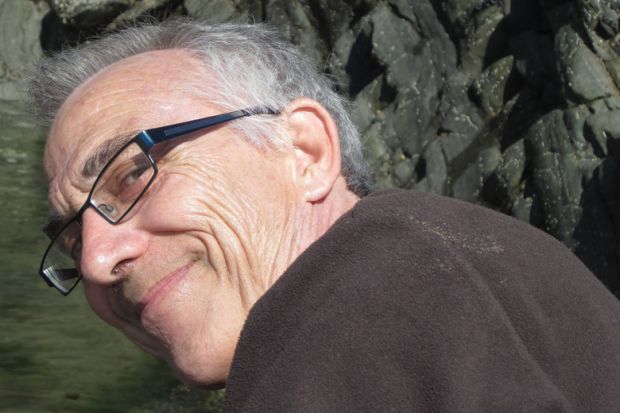Mark Pluciennik was born in Enfield, North London, on 11 November 1953 and educated at Latymer Grammar School. He started but failed to complete a degree in geography at the University of Manchester and spent many years as a youth worker and journalist in London, Cornwall, Yorkshire, South Wales and elsewhere.
In his early thirties, however, Dr Pluciennik studied for a BA in archaeology at the University of Sheffield (1986-89), immediately followed by a PhD on the later prehistoric landscape of South Italy and Sicily (1990-94). This included a period at the British School at Rome (1992-93), where he threw himself into the intellectual life of the city, exploring Baroque art and the architectural legacy of Fascism as well as visiting rural churches in his far-from-pristine Lada.
Despite his late start, Dr Pluciennik soon forged a successful academic career. He was appointed a lecturer in the department of archaeology at the University of Wales, Lampeter in 1996, before moving to the University of Leicester in 2003 to become lecturer in archaeology and director of distance learning. He was to remain there until retirement in 2011.
He went on to serve as a party agent for the Green Party in the 2015 general election and to develop a sideline in producing dry-cured meats and sausages.
In terms of research, Dr Pluciennik was notably wide-ranging in his interests, working on the transition to farming in Europe; Mediterranean landscapes; the politics and ethics of archaeology; and the evolution of hunter-gatherer societies. The last of these was at the heart of his celebrated 2005 book, Social Evolution.
In addition to his theoretical contribution, Dr Pluciennik carried out fieldwork in Kosovo and particularly Sicily, where he co-directed a British Academy-funded excavation project in the Torcicoda River valley, which identified sites all the way from the Neolithic to the post-medieval period and even surveyed much more recent buildings.
He also played a major role in developing distance learning within Leicester as well as more widely through his membership of the editorial board of Research in Archaeological Education and on the Standing Committee on Archaeology and Continuing Education.
Richard Thomas, head of Leicester’s School of Archaeology and Ancient History, described Dr Pluciennik as “a scholar of international repute” who was “erudite, principled and quick-witted” as well as notable for “his energy and persistence in making sure things happened”.
Dr Pluciennik died on 7 May after suffering from a progressive neurological condition and is survived by his partner – fellow Leicester archaeologist Sarah Tarlow – and their three children.
